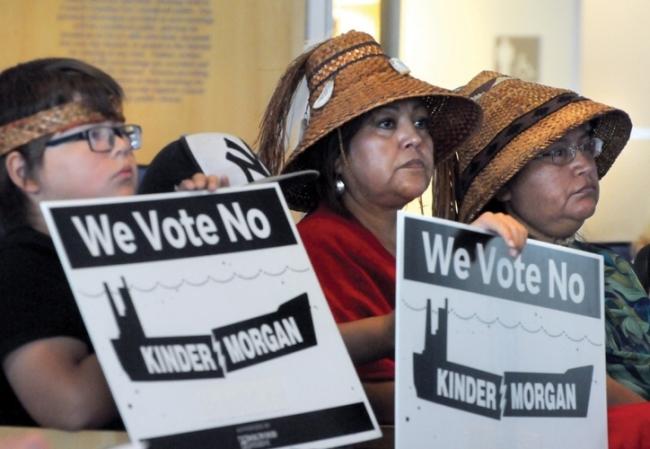Articles Menu

A three-person ministerial panel set up as a kind of complaints desk for the Trans Mountain pipeline project has submitted its final report to the Canadian government.
Federal ministers will find plenty of grievances about the pipeline and the National Energy Board (NEB) regulatory process that approved it in the 60-page report.
“Some members of the public, as well as some First Nations, assumed that the panel would facilitate a full-scale consultation,” the report states. “That was never the intent.
“We set out to try to achieve a fuller understanding about what the NEB process might have missed and to sample input from among the more than 460 people and interested parties who had been denied intervener or commenter status before the NEB.”
The panel was struck by the federal Liberal government in response to complaints the NEB regulatory process itself was flawed.
One of the complaints was that the NEB allowed no cross-examination of the pipeline proponent, Kinder Morgan Canada.
The panel toured communities throughout Alberta and B.C., holding town hall type meetings, and received thousands of petitions, emails and other written submissions. The panel held 44 public meetings and heard presentations from 650 people. It also received input from 22 First Nations and four First Nation organizations.
Not surprisingly, the support for or opposition to the project varied widely, depending on where meetings were held, or how the input was gained.
In questionnaire results, 77% of those who volunteered reasons for their position said that they supported the project, while emails “which definitely reflected the efforts of several well-organized campaigns” showed 98% opposition.
At the first town hall meeting held in Alberta, all but one of the 75 people attending spoke in support of the project. The panel also found some support in B.C. communities like Kamloops.
But in places like Vancouver, Burnaby, Surrey and Fraser Valley communities, opposition to the project was overwhelming.
Terry Beech, MP for Burnaby–North Seymour, who held his own consultations with constituents, found little support in his community for the project.
“After speaking with tens of thousands of individuals ... I can tell you with confidence that the people of Burnaby–North Seymour on balance stand opposed to this project, and that the community does not currently grant permission for this project to proceed,” the panel quotes Beech as saying.
That may pose a problem for Prime Minister Justin Trudeau who, prior to being elected, put a high premium on social licence when he said that governments can provide permits but that only communities can grant permission.
The panel summarizes a huge volume of opinions on the pipeline projects but makes no recommendations. It presents six questions for the government to consider:
1. Can construction of a new Trans Mountain Pipeline be reconciled with Canada’s climate change commitments?
2. In the absence of a comprehensive national energy strategy, how can policy-makers effectively assess projects such as the Trans Mountain Pipeline?
3. How might Cabinet square approval of the Trans Mountain Pipeline with its commitment to reconciliation with First Nations and to the UNDRIP (United Nations Declaration on the Rights of Indigenous Peoples) principles of “free, prior, and informed consent?”
4. Given the changed economic and political circumstances, the perceived flaws in the NEB process, and also the criticism of the Ministerial Panel’s own review, how can Canada be confident in its assessment of the project’s economic rewards and risks?
5. If approved, what route would best serve aquifer, municipal, aquatic and marine safety?
6. How does federal policy define the terms “social licence” and “Canadian public interest” and their inter-relationships?
The federal government is expected to make a decision on the Trans Mountain pipeline project by mid-December.
[Top photo: Squamish Nation members Jamie Antone, Sut-Lut and Clarissa Antone make their presence felt at the Trans Mountain ministerial panel hearing held at District of North Vancouver hall on Aug. 19 | Mike Wakefield, North Shore News]